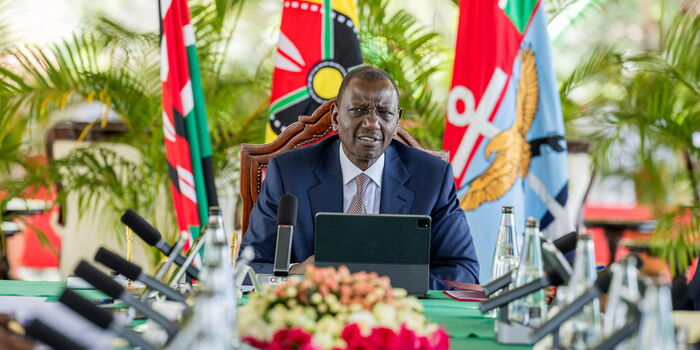Agriculture Cabinet Secretary Mutahi Kagwe has announced that the government is working on a plan to lease the financially troubled Pyrethrum Processing Company of Kenya (PPCK) to private investors in an effort to revive the struggling institution.
Speaking on Wednesday, November 19, Kagwe explained that the proposal already has the support of PPCK employees, who believe leasing the company is the only realistic way to restore its profitability and ensure long-term stability. The plan is now awaiting formal approval from the Cabinet before it can move forward.
Kagwe noted that PPCK has been operating with limited resources for years, receiving inadequate financial support from the government.
This lack of funding has weakened the company’s operations and slowed down the overall growth of Kenya’s pyrethrum sector, which relies heavily on the company for processing and market support.
Before the leasing plan is executed, the government will first restructure the company’s finances. This will include cleaning up PPCK’s balance sheet, carrying out a fresh valuation of its assets, and conducting thorough due diligence to ensure transparency before handing over operations to a private investor.
According to a statement from the Ministry of Agriculture, Kagwe highlighted that PPCK’s current financial performance is not sustainable, noting that the company generates about Ksh35 million annually, with its highest earnings reaching only Ksh60 million — figures far below what is needed to support its operations.
He further explained that the company has not been receiving any funds for research, a crucial component for strengthening the pyrethrum value chain.
Without research funding, the company struggles to improve seed quality, develop better farming methods, and support farmers effectively.
PPCK’s role in the pyrethrum sector is critical, as it processes, manufactures, and markets pyrethrum and pyrethrum-based products.
The company also supports farmers by offering technical advice, promoting high-quality seeds, and conducting quality control to ensure Kenyan pyrethrum remains competitive both locally and internationally.
It also extracts pyrethrins used in natural insecticides — one of the most important products derived from pyrethrum.
Despite its importance, PPCK is burdened by a massive debt of Ksh3.5 billion, including what it owes suppliers and pension arrears for former employees.
Kagwe also revealed that the company still owes pyrethrum farmers Ksh10 million for deliveries made between August and October. He assured farmers that the government will clear this outstanding amount immediately to restore confidence and support continued production.
According to the ministry’s statement, Kagwe emphasized that although PPCK is facing serious challenges, the government is determined to protect farmers, stabilize payments, and boost the industry’s global competitiveness through a modern, private-sector–driven model.
To strengthen the pyrethrum value chain, the CS added that the government is also implementing additional measures.
These include distributing clean and disease-free planting materials, expanding extension services to reach more farmers, and ensuring that production standards meet international requirements to help Kenya access and maintain export markets.
Overall, the plan to lease PPCK is seen as a major step toward reviving the pyrethrum industry and ensuring that farmers benefit from a more stable, productive, and internationally competitive sector.
Join Government Official WhatsApp Channel To Stay Updated On time
https://whatsapp.com/channel/0029VaWT5gSGufImU8R0DO30


